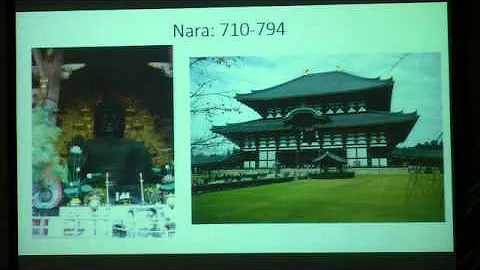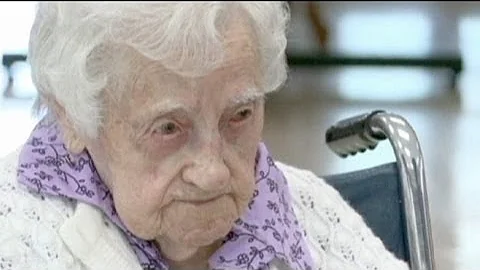Jiroemon Kimura passed away in 2013 at the age of 116. He is said to be the longest-living man in history with clear birth and death records. So what's the secret to his longevity? Non-fiction writer Bill Bryson 's book "The Human Body" introduces seven little-known facts about lifespan discovered by the latest research.
(1) The body is equipped with a death countdown monitoring device
In 1961, Leonard Hayfrick, a young researcher at the West Research Institute in southern Philadelphia, Pennsylvania, discovered a fact that almost no one in the same field could accept. The truth. The stem cells it cultured, that is, cells grown in the laboratory rather than in the human body, can only divide about 50 times before losing their viability for unknown reasons. Stem cells appear to be programmed to age and die, a phenomenon known as "Hayflick limit". This is a major milestone for biology; it is the first time that aging has been shown to occur at the cellular level.
In addition, Hayfrick also discovered that the cultured stem cells can be frozen and stored indefinitely. If thawed, aging will resume from the interrupted time point; apparently there is an aggregator in the cell structure , which records the number of cell divisions. The cells themselves retain memories in a unique way and monitor their own death countdown. This idea was so radical that almost everyone was confused at the time.
The end particles of chromosomes (telomeres) have an accumulation effect.
Hayfrick's discovery was subsequently shelved for nearly a decade. Later, a UCSF research team discovered that a series of specialized DNA at the end of each chromosome, also known as telomeres , act as aggregators. Telomeres of all types of cells shorten every time they divide, until they reach a predetermined length (which varies by cell type) and the cell dies or becomes inert. With this discovery, the "Hayflick Limit" suddenly became credible and enthusiastically embraced as a secret to aging. In this way, as long as the shortening of telomeres can be effectively prevented, cell aging may be stopped. As a result, older scholars all over the world began to lose their composure.
Key Factors in Preventing Aging Elsewhere
Sadly, after years of research, we have discovered that shortening telomeres is only a tiny part of the aging process. Over the age of 60, the risk of death doubles every 8 years. Research by geneticists at the University of Utah shows that telomere length appears to account for only 4 percent of the additional risk. In 2017, gerontologist Judith Campich published an opinion in the column of the medical and health news website "Start" and pointed out that "if aging was solely the fault of telomeres, then the aging problem would have been solved long ago."
It is understood that in addition to telomeres, In addition, there are many other factors related to aging. Telomeres are involved in many other processes besides aging. The chemistry of telomeres is regulated by an enzyme called telomerase , which terminates the cell's life when it reaches a predetermined number of divisions.
However, for cancer cells, telomerase does not instruct the cells to stop dividing, allowing them to divide and proliferate indefinitely. This raises the possibility of combating cancer by targeting telomerase in cells. In other words, not only for preventing aging, telomeres are also apparently important for treating cancer. But unfortunately, there is still a long way to go to figure out any of these situations.
(2) Antioxidant supplements are ineffective against aging
Although it is not important, two words that are often mentioned in aging research are " free radicals " and "antioxidants". Free radicals are old waste products accumulated by cells during metabolism and are by-products produced when absorbing oxygen. As one toxicology researcher puts it, "Aging is the biochemical cost of breathing." Antioxidants are molecules that neutralize free radicals, so people think that taking a lot of antioxidant supplements can fight aging; however, there is no scientific evidence. support.
In 1945, California chemistry research expert Denham Herman saw an article about aging from the "Lady's Home Journal" that his wife subscribed to and said: "About free radicals and antioxidants as key elements of human aging. If the relevant theoretical research cannot be carried out in an orderly manner, then almost most people will not have heard of free radicals or antioxidants. "Herman's idea was not just intuition, and subsequent research also proved it to be wrong. But the idea seems to have become too ingrained to be eradicated; sales of antioxidant supplements alone now exceed $2 billion a year.
David James of University College London said in "Nature" magazine in 2015: "It is completely ridiculous and evil commercial hype. The reason why the concept of oxidation and aging cannot be erased is because it will always be used to make money from it. The New York Times states: “Some studies suggest antioxidant supplements may be harmful. "In 2013, the top academic journal in this field, "Antioxidants and Redox Signaling," published this information, "Taking antioxidant supplements not only does not reduce the incidence of many age-related diseases, but in some cases, Increases risk of death. "
American supplement problem
There is also a shocking social problem in the United States, that is, the Food and Drug Administration rarely regulates supplements. An article published in the American magazine "Scientific American" pointed out that "as long as it does not contain any prescription drugs, there will be no casualties. or serious injury, supplement manufacturers can sell supplements as they please. There are no promises of purity or potency, no set guidelines for dosage, and no warnings about side effects when taking the products. "Supplement products may be effective, but they just don't need to prove that fact."
It can be said that Denham Herman has nothing to do with the supplement industry and is not a spokesperson for antioxidant theory, but he has followed a healthy regimen throughout his life, which is to consume large amounts of vitamins C and E antioxidants, and eat large amounts of antioxidant-rich foods. oxidized components of fruits and vegetables without causing any harm; Hermann lived to be 98 years old.
(3) After the age of 40, the amount of blood reaching the organs will continue to decrease.
No one can escape the fate of aging even if they are healthy. As we age, our bladders lose their elasticity and no longer hold up as well as they once did; so one of the curses of aging is the inability to take your eyes off the toilet. In addition, the skin will also lose elasticity, become dry and stiff; blood vessels will also be prone to rupture and blockage. The immune system cannot catch invaders as quickly as before; the number of pigment cells generally decreases, and the remaining cells occasionally increase to form stains and liver spots; although they are called liver spots, they have nothing to do with the liver. The layer of fat in direct contact with the skin also becomes thinner, making older bodies more susceptible to coldness.
What’s more serious is that as we age, the amount of blood ejected with each heartbeat gradually decreases. There is no doubt that the heart will eventually fail even in the absence of other illnesses. As the amount of blood transported from the heart decreases, the blood received by the internal organs will also decrease; after the age of 40, the amount of blood reaching the kidneys decreases by an average of 1% per year.
4) The true relationship between women’s menopause and their eggs
Women can truly feel the aging process after amenorrhea. Most animals die soon after losing their fertility, but human women live about one-third of their lives after menopause.
Humans are the only primates to experience amenorrhea, a rare condition for other animals. Melbourne's Florey Institute of Neuroscience and Mental Health is using sheep to study menopause. The reason is simple. Sheep are the only land animals that suffer from amenorrhea like humans. In addition, at least two species of whales also have the same experience, but it is still unclear why these animals experience menopause. Menopause can be very painful, with about three-quarters of women experiencing hot flashes or discomfort during menopause (symptoms are caused by hormonal changes and often feel like sudden hot flashes above the chest to the top).
Menopause is related to the decline of estrogen, but there is currently no specific test. Ross George published an article in an online magazine saying that when a woman is about to enter amenorrhea (generally a premenopausal stage), the most obvious characteristic is that menstruation becomes irregular and she often feels "something is wrong".
Menopause, like aging itself, remains a mystery as to why it occurs. Two theoretical views have been put forward regarding this, known by the beautiful names of "Mother Says" and "Grandma Says" respectively. According to "Mother Says," already dangerous and difficult childbirth becomes more severe as women age. In other words, menopause may be a protective strategy; one that allows one to focus on maintaining one's own health without being exhausted or distracted by childbirth, and to complete parenting during one's most fulfilling years. This naturally leads to the latter's "grandmother theory", which is the theory that women undergo menopause in midlife to help raise their children.
As for saying that women undergo menopause because they try to store their eggs, this is a fabrication. There are eggs, although not many, but enough for conception. In other words, the process that causes amenorrhea isn't a literal depletion of eggs (although many doctors seem to think so); it's just that no one knows what causes amenorrhea.
(5) The chance of living to age 110 is 1 in 7 million
A 2016 study from the Albert Einstein College of Medicine in New York concluded that no matter how medical technology advances, fewer people will be over 115. . On the other hand, Matt Kevalin, a biogerontologist at the University of Washington, believes that modern young people will typically live 50% longer than they do now. Dr. Aubrey de Gray, chief researcher of the SENS Research Foundation at California State University, believes that some people alive today may even live to be a thousand years old. Geneticist Richard Corson of the University of Utah suggests that, at least in theory, lifespan could be extended.
One thing that is certain is that so far, only about one person in every 10,000 people can live to be 100 years old; as for people who are over 100 years old, it is not clear because the number is really small. A gerontology research team at the University of California, Los Angeles (UCLA) is tracking all the world's super-aged celebrities—those who have just celebrated their 110th birthday.
However because most of the world's record keeping is sloppy, many people think they are older than they actually are for various reasons. UCLA researchers tend to be cautious in approving those who wish to join this elite membership club. About 70 confirmed cases of very old people have been documented, but this number is probably only half of the actual number in the world as a whole.
The chance that each of us will celebrate our 110th birthday is about one in 7 million. Women will have a clear advantage, with odds 10 times higher than men. It's interesting that women have lived longer than men since ancient times, and it's a bit strange that men don't die during childbirth. Also, for most of history, men had very little exposure to infections while caring for sick people. Yet at any time in history, in any society surveyed, women have lived, on average, several years longer than men. And even now with nearly the same medical care, things haven't changed.
17 years old, eats two cigarettes a day and eats one kilogram of chocolate every week
The oldest person in modern times is Jeanne-Louise Calment ( Yana Calment) from Arles, France. She died in 1997 He died in 2001 at the age of 122 years and 164 days. She is not the first person to reach 122 years old, there were others who were 116, 117, 118, 119, 120 and 121 years old before. Kalman lived a leisurely life throughout his life. Her father was a wealthy naval architect and her husband was a successful industrialist. She never worked, lived more than half a century longer than her husband, and 63 years longer than her only daughter. Kalman smoked all his life and did not quit smoking until he was 117 years old. He still smoked two cigarettes a day and ate a kilogram of chocolate every week. He was still active and in good health before his death.As she got older, she would often smile and boast, "I never had a wrinkle, except for the one that showed up on my chair."
Kalman was once the beneficiary of a bad deal, which was interesting. . When financial difficulties hit him in 1965, Kalman promised a lawyer that if he paid 2,500 francs a month, he would give him his apartment after his death. Kalman was 90 years old at the time, so it was a pretty good deal for the lawyer. However, 30 years after signing the contract, the lawyer died before Kalman. In the end, he continued to pay Kalman more than 900,000 francs (approximately US$184,000) without receiving the apartment.
(6) After the age of 80, genes are the key.
The oldest person in the world with a clear record of birth and death, Jiroemon Kimura of Japan, died in 2013 at the age of 116 years and 54 days. Kimura lived a quiet life as a post office clerk and spent a long period of seclusion in a village near Kyoto.
leads a healthy life, as do millions of Japanese; but why does Kimura live longer than others? There is no answer to this question, but family genes appear to play an important role. Daniel Lieberman tells us that you need to follow a healthy lifestyle after the age of 80, and after that it’s all about genes. According to Bernard Starr, professor emeritus at the City University of New York, “The best way to ensure longevity is to choose your parents. As of this writing, there are three (two) people in the world with documented lifespans of 115 years. Japanese and one Italian); three 114-year-olds (two French and one Japanese)
(7) Living alone shortens life span
On all scales, some people live longer. Longer than expected, according to Joe Matchett's book "The Science of Breathing Disease," Costa Ricans own only about one-fifth of the personal wealth in the U.S., even though they have poor access to health care. But longevity. In addition, the Nicoya Peninsula is one of the poorest regions in Costa Rica, and they have the longest lifespan despite having quite high rates of obesity and hypertension. Additionally, they have longer telomeres than others. One theory is that they benefit from close social bonds and family relationships.

Interestingly, the long-term telomere benefits disappear if you are widowed or don't see your children even once a week. Yes, being in a good, loving relationship can change physical DNA. Conversely, failing to be in such a relationship, regardless of the cause, doubles the risk of death.





















